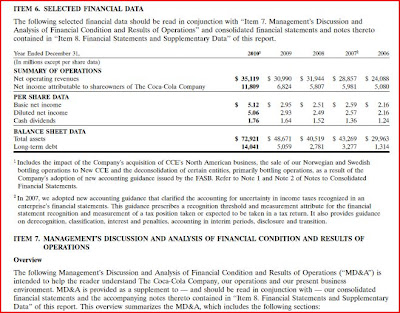"Ignorance is preferable to error, and he is less remote from the truth who believes nothing than he who believes what is wrong.' Thomas Jefferson
So we come to the lot of dairy farmer believer:
http://www.burlingtonfreepress.com/article/20110414/NEWS02/110413042/0/NEWS0213/Some-farmers-unhappy-Dean-Foods-settlement?odyssey=nav|headhttp://www.blogger.com/img/blank.gif
A quote from the article:
Yet Friday morning, as many as two dozen dairy farmers will converge on federal court in Burlington to show their objection to the Dean Foods settlement, saying it could put them out of business. These farmers say the settlement, far from restoring competition, would enable Dean Foods to start dictating even lower milk prices.
Obviously those farmer cannot remember before Suiza/Dean came on the scene and bonuses were actually paid.
There is a case in the Southeast where there was a hearing on January 20, 2011. On page 90 of the transcript: "NEXT WE COME TO PROMISE OF PREFERENTIAL PRICES. THESE ARE CONTEMPORANEOUS NOTES OF A 1998 ENGLES-HANMAN MEETING WHICH SHOWS THAT DFA AGREED TO USE CREDITS AND REBATES TO HELP SUIZA EXPAND. GARY HANMAN WROTE, QUOTE,NEED ACCESS TO MARKET, WILLING TO PRICE MILK SO YOU CAN BE COMPETITIVE, CAN GIVE CREDITS INTO AREAS AS YOU EXPAND,END QUOTE"
The Howrey law firm has invested $15 - 20 million in the southeast case and have box after box of discovery material.
On page 91 of the transcript: "SUIZA'S PLAN, I'M ON SLIDE 20, WAS HATCHED DURING A HUNTING TRIP HOSTED BY HANMAN, AND ATTENDED BY MR. ENGLES, MR. HANMAN, MR. BOS, MR. SCHENKEL, HOWARD DEAN AND SOME OTHER PEOPLE. OLD DEAN HAD A PRICE ADVANTAGES OVER BOTH SUIZA AND DFA IN BOTTLING BECAUSE OLD DEAN PROCURED LESS EXPENSIVE MILK FROM INDEPENDENT FARMERS. OLD DEAN HAD A PRICE ADVANTAGE OVER DFA IN MILK PROCUREMENT BECAUSE, BY ELIMINATING THE MIDDLEMAN, DFA, OLD DEAN PAID ITS INDEPENDENT FARMERS MORE THAN DFA PAID
ITS MEMBERS."
On page 118 of the transcript: "HANMAN ALSO HAD A MULTI-MILLION DOLLAR BONUS BASED ON INCREASES IN VALUE OR RETURNS ON EQUITY ON SUIZA/DEAN'S BOTTLING PLANTS AND DFA'S JOINT
VENTURE BOTTLING AFFILIATE DURING THE 1998-2004 PERIOD. MR. HANMAN RECEIVED NO BONUSES BASED ON INCREASING MILK PRICES. THE WHOLE POINT OF DFA IS TO GET THE BEST PRICES
FOR THEIR FARMERS. NONE OF HIS BONUSES WERE BASED ON THAT, THEY WERE BASED ON OTHER THINGS THAT MOTIVATED HIS ACTION."
While some DFA/DMS farmers may well believe they are getting the best possible deal now, the facts do not support that conclusion.
DFA is very good at managing herd behavior.


























